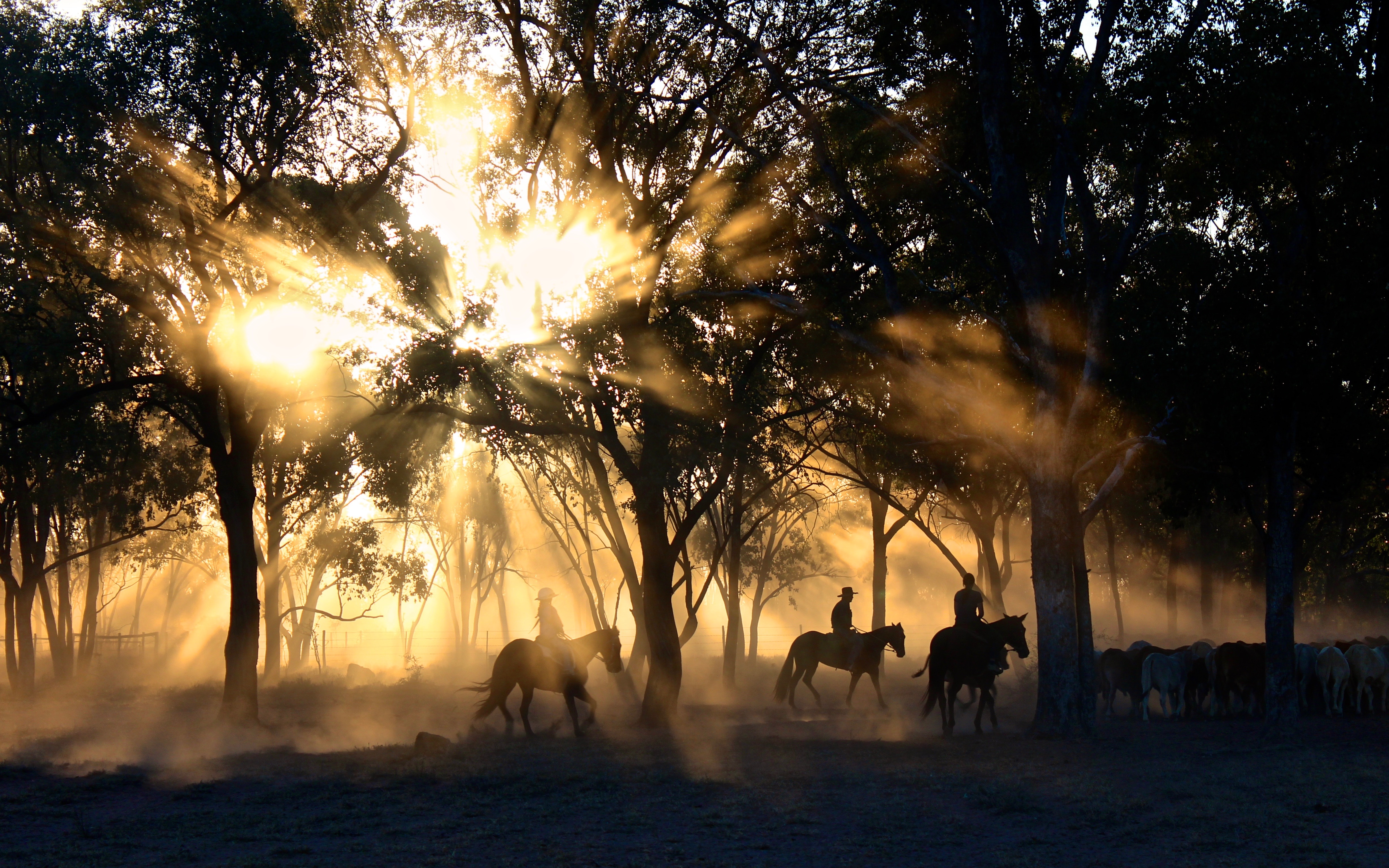Discovering Coleridge

Growing up as a cowboy working mostly with horses, poetry was not something I dedicated any time to reading. I was much more interested in reading one of Louis L’Amour’s Sackett novels, or watching The Man From Snowy River, or dreaming of winning my first buckle at a rodeo. This in no way suggests cowboys or the cowboy life lacks poetry. Quite the opposite. Baxter Black is perhaps the most well-known of cowboy poets, and anyone who has been in a tavern after a day of marking-n-branding knows the cowboy storyteller is as poetic as he is philosophical.
Nonetheless, my love for poetry was cultivated much later and by one poet in particular. It began while reading the works of the late trinitarian theologian Colin E. Gunton, who relied heavily on the distinctive contribution Samuel Taylor Coleridge made to a sound trinitarian theology. Gunton had created a gap that inspired me to explore further the writings and thoughts of this, to me, obscure British poet. What little I knew of Coleridge suggested nothing that would support Gunton’s trust and appellation of him as a valuable source for trinitarian thinking. Yet the more I read Gunton, the more I believed his affection for Coleridge’s writings to be genuine and that this particular poet really did have something substantive to say about God, humanity, and the world we inhabit.
I decided I should attempt reading Coleridge, but my interests were chiefly aimed at mining his theological reflections. One day my eyes landed on a copy of The Portable Coleridge in a Boston bookstore. In addition to his poetry, the book contained his letters, essays, and selections from the Biographia Literaria. Excellent. I’m not sure what initiated my wandering to the first half of the book, but I soon found myself reading through one poem after the other. For more than twenty years now I have been packing around this book learning of the man, the poet, of the imagination, the transcendent, of words and the meanings they convey.
I confess. My love for poetry has taken root and grown to become a leading passion. Though I also confess that for twenty years I have only read one poet. Seneca’s dictum, aegri animi ista iactatio est follows his opening instruction that non discurris nec locorum mutationibus inquietaris. This second letter to Lucilius is a sobering exposition of the malnutrition that results from want, particularly as it relates to the possessing and reading of many authors. I’ve taken comfort from this letter as support for my long journey with Coleridge at the expense of not having yet travelled with Frost, Eliot, or Hopkins. Though, the nudgings of two friends has led to my purchase of the collected works by Robert Frost.
Of course, STC is known best for his “Rhyme of the Ancient Mariner” and perhaps “Kubla Khan”, but what about his lesser-known poetry, his letters, reflections, and essays? In a letter to John Thewall, Coleridge shared a few lines from one of his poems that he confessed to be his favorite.
“The ‘capability of being stimulated into sensation’ . . . is my definition of animal life. Monro believes in a plastic, immaterial nature, all-pervading.
And what if all of animated nature
Be but organic harps diversely framed,
That tremble into thought, as o’er them sweeps
Plastic and vast, etc.
(By the bye, that is the favorite of my poems; do you like it?)”
I especially enjoy reading Coleridge asking his friend whether he likes the poem. It provides us a momentary glimpse of the poet’s character and humanity, his fondness for his poetry and friendship. The excerpt is from his poem “The Eolian Harp” written in the summer of 1795 shortly before his marriage to Sarah Fricker. I spent a year reading, contemplating, and memorizing “The Eolian Harp” and grew to love it perhaps as much as its author. It was not the first, but it was at that time the most influencive. This poem, more than any other, taught me how to read poetry and attend to the meaning of words, their relations, and imaginative power. It is a beautiful poem that draws from the classical tradition of the muse to unveil for us the work of the poet and of poetry making. Yet, it is not limited to the poet. Coleridge is careful to illustrate through his contemplation that everyman shares in this imaginative and divine act. All of this happens within a humble setting, but one that sits at the junction of the finite and infinite, the mundane and transcendent.
Set aside some time over the next few weeks to read “The Eolian Harp” and “tranquil muse upon tranquility.” As time permits, we will revisit this work and explore what the poet discloses about the beauty of “a world so fill’d; Where the breeze warbles, and the mute still air Is Music slumbering on her instrument.”
Buck Holler
Buck Holler is a former horse trainer and rodeo cowboy from Red Bluff, CA. Retiring from the rodeo circuit, Buck headed to New England to study theology and languages at Gordon-Conwell Theological Seminary in 2001. Since then he has worked as an educator and administrator in CA, New York City, and eastern NC. Buck first joined The CiRCE Institute as an apprentice in 2007, became a head mentor for the East Coast III apprenticeship in 2017, began the Latin Apprenticeship in 2019, and now serves in Concord, NC as CiRCE’s director of consulting.











